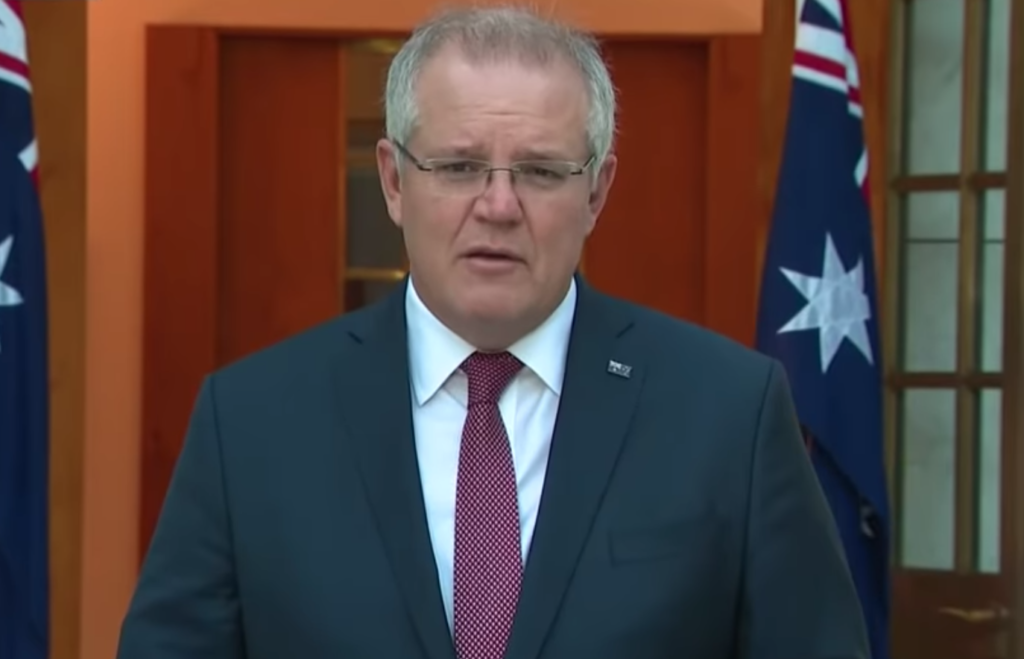Prime Minister Scott Morrison has announced that the rate of the JobSeeker coronavirus supplement will be extended at a reduced rate of $150 per week, for three months starting 1 January.
The reduced rate means that those relying on JobSeeker will receive $100 dollars less every fortnight. A single person will receive $715 per fortnight – down from $815 – equating to approximately $51.20 a day. This rate will remain in place until March 2021.
“Today, we are announcing the changes to the Covid Supplement we introduced at the start of the pandemic, and we will be extending that supplement for three months after the end of December,” Morrison said at a press conference on Tuesday.
“We will be changing the rate of that supplement down to $150 for that period, out to the end of three months.”
Asked if the government was considering elevating the base rate of $40 a day for JobSeeker, which advocacy groups say is below the rate of poverty, Morrison said there had been no decision made yet.
“What we are focused on right now is the emergency measures that need to be in place for the pandemic,” he said.
“Right now what matters is the supports that will continue to be provided at these elevated and temporary levels.”
An independent report released in September from the Parliamentary Budget Office revealed the most likely person to be on JobSeeker before the pandemic was a woman over the age of 45. Between March and June this year, more women than men experienced job losses, with many women leaving the workforce altogether.
By contrast, in the 1990s, two in five recipients were men under the age of 35, and they typically needed the support for less than 12 months. Now, older women are most likely to be recipients, with 71 per cent spending over a year on JobSeeker (or the old Newstart).
“While the increases in JobSeeker recipient numbers since COVID-19 are higher for men than women, data on job losses shows higher losses for women between March and June, and more women leaving the labour force altogether, in part reflecting higher concentration of women in the industries most affected by the early stages of COVID-19 restrictions,” the report said.
“The predominantly female parenting payment has also seen a striking increase, with parenting payment (partnered) recipients increasing by 36 per cent and single recipients by 6 per cent between March and June 2020. Recipient numbers for both payments had previously been trending downwards.”
The report also noted that while some jobs held by women recovered through June, total job losses from mid-March to June were still greater for women than men, a reflection of female-dominated industries being hit harder in the recession.
Cutting Jobseeker to $51 a day after Christmas is cruel, plain & simple. It will achieve nothing for anyone that is good and plunge already marginalised people into poverty and despair. #RaisetheRateForGood
— Jane Caro (@JaneCaro) November 10, 2020
President of the Australian Council of Trade Unions Michele O’Neil is calling on the Morrison government to revert the JobSeeker payment to the original coronavirus supplement rate. She says the government should be supporting people looking for work.
“Cutting JobSeeker will lead to greater financial hardship for the hundreds of thousands of working people who are currently out of work due to the pandemic and recession,” O’Neil said.
“Rather than supporting working people through the worst economic downturn in a century the Government has reverted to ideological attacks on the unemployed – arguing that payments which allowed unemployed people to afford food and rent were somehow ‘holding them back’.
“Poverty rates for the unemployed only makes losing a job more traumatic. It does nothing to help people find work.”
Morrison has said that “jobs are returning” in Australia, but data shows unemployment jumped to 6.9 per cent in October, while under employment continues to be a significant issue.
The Reserve Bank has predicted the unemployment rate will peak at around 8 per cent by the end of the year, and has cut interest rates to a historic low of 0.1 per cent.
Reserve Bank Governor Philip Lowe said the interest rate cut would help address unemployment, which he described as an “important national priority”.


